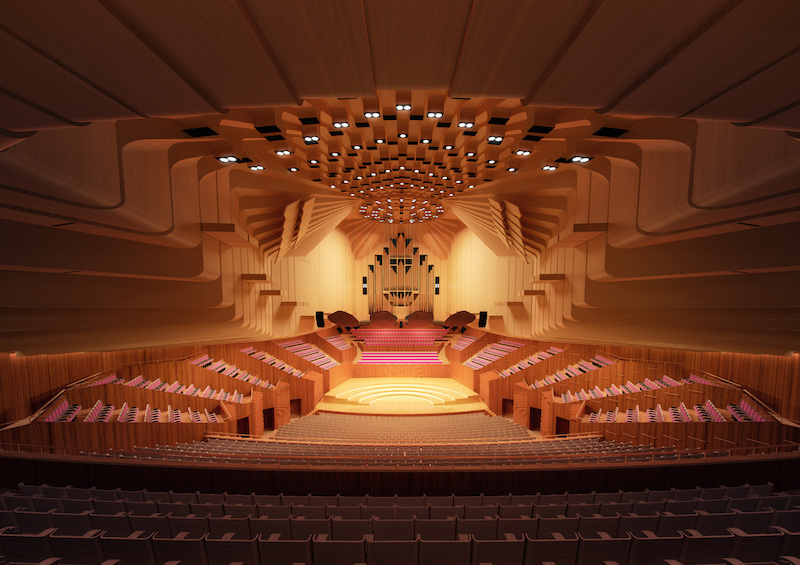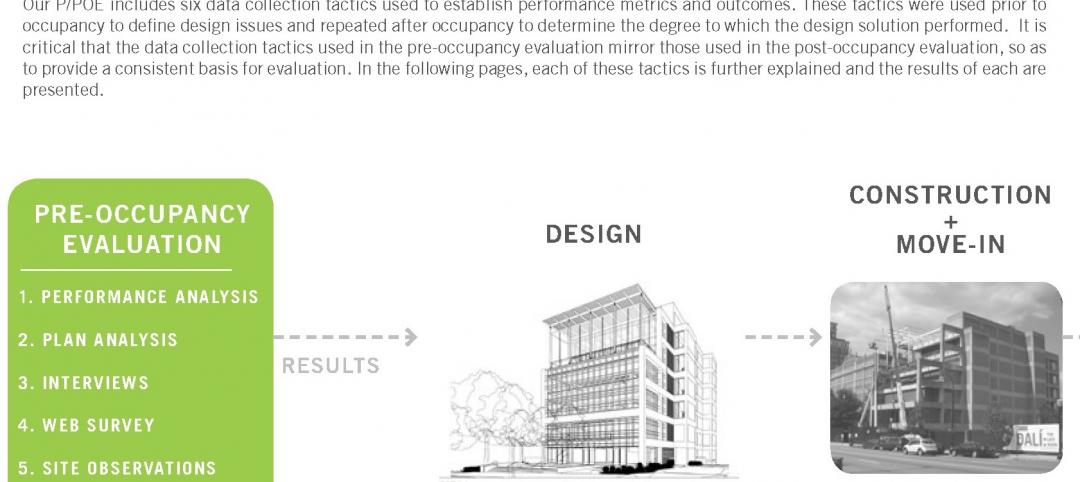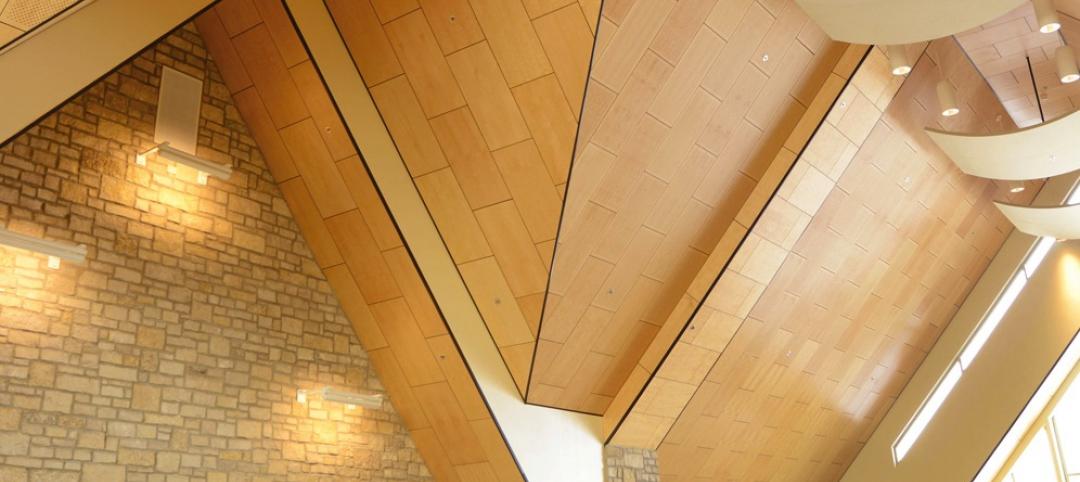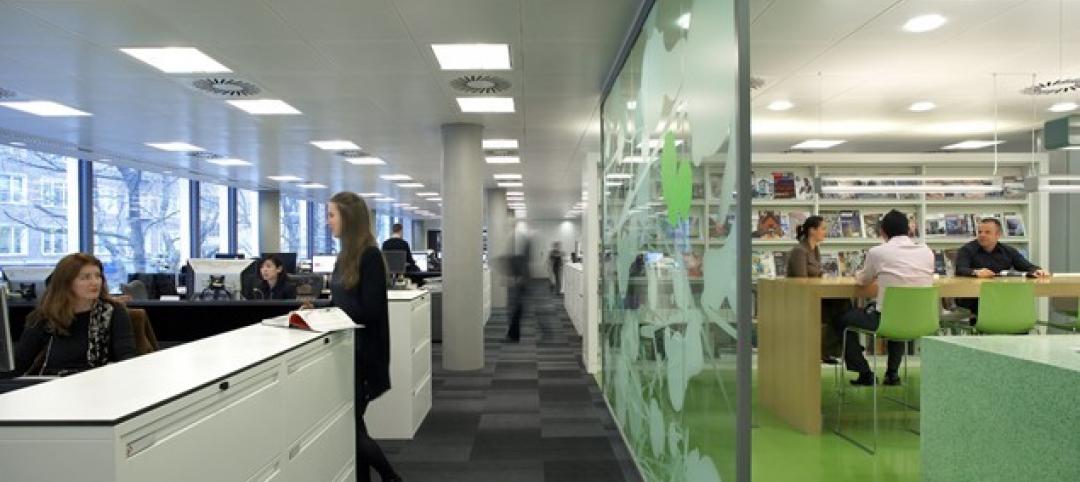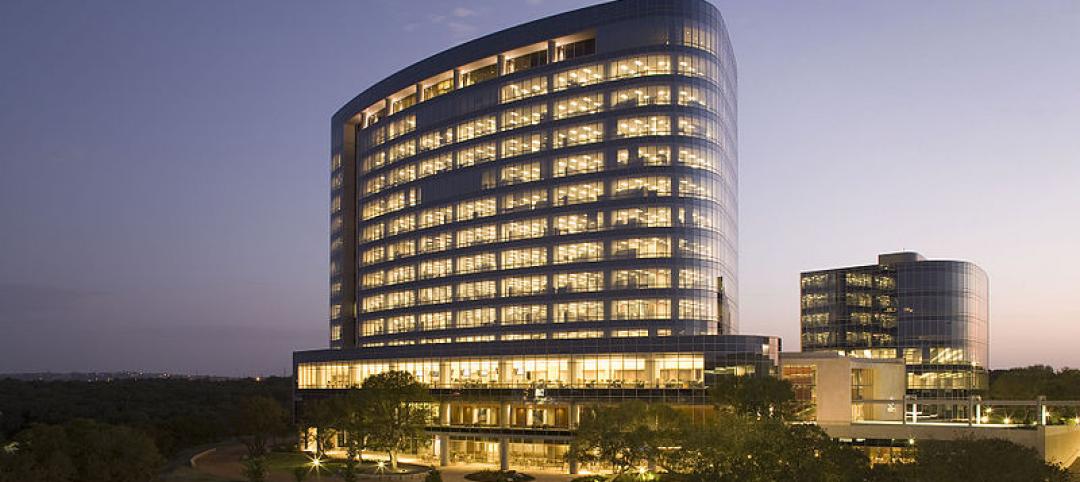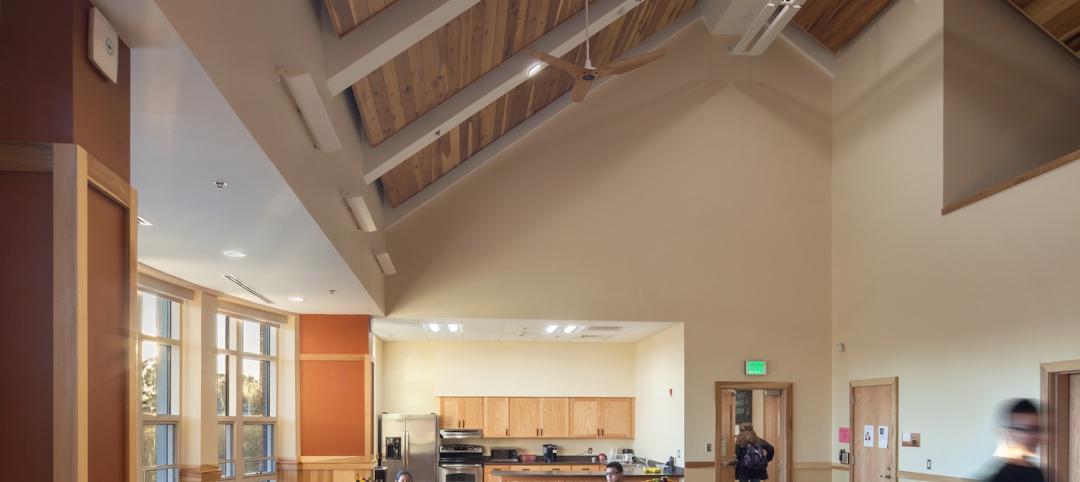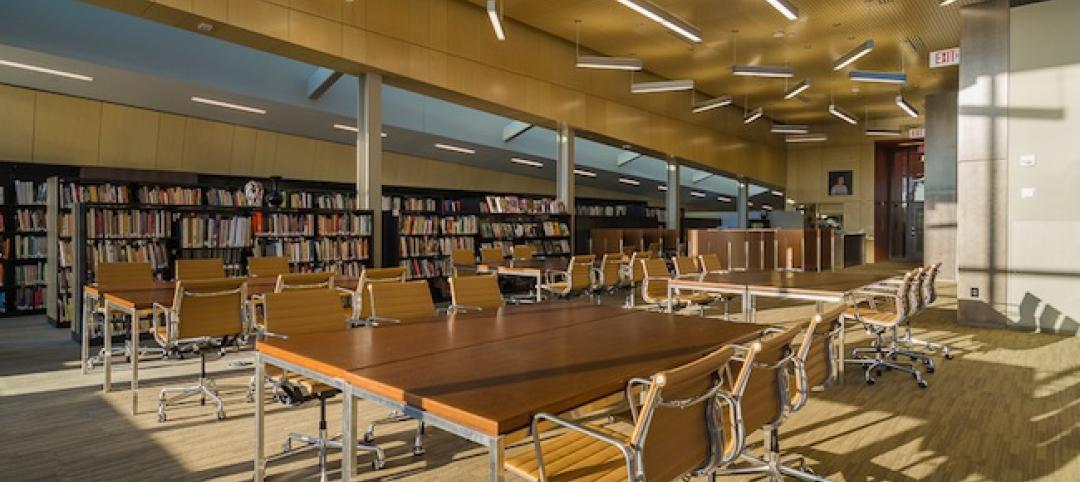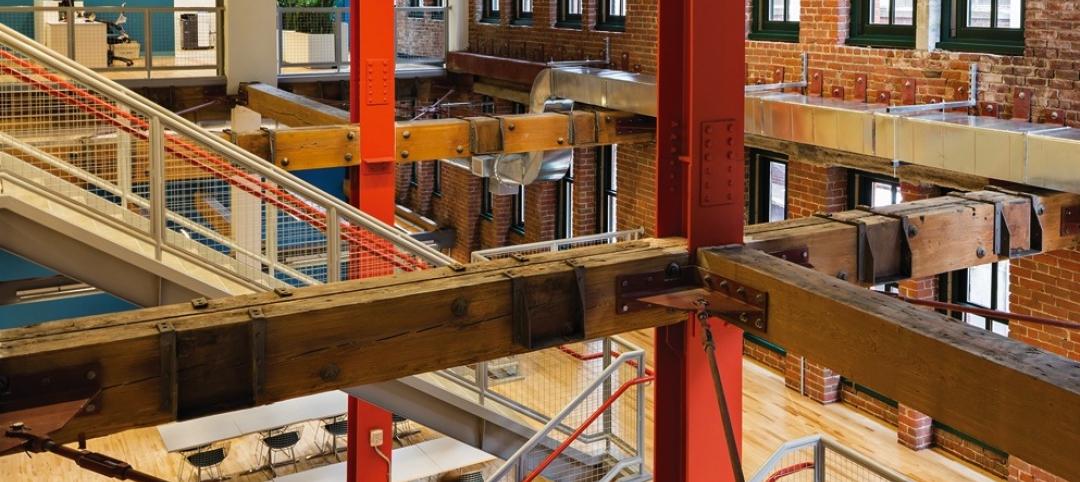Even if they don’t know its name, its purpose, or its location, most people can see a picture of the Sydney Opera House and instantly recognize it as familiar. It is near the top of the list with other buildings such as the Empire State Building, Big Ben, and the Eiffel Tower as the most iconic structures in the world. However, even icons need some sprucing up now and again, and over the next four years, the Sydney Opera House is going to undergo some major renovations and upgrades.
Before anyone freaks out, rest assured, the roof of the building, its most iconic aspect, which resembles a grouping of sails or a stegosaurus’s back, will remain unchanged.
The Opera House renovations are expected to cost around $200 million. $150 million of that total will go towards upgrading the concert hall alone.
That may seem like a pretty hefty price tag for renovating an iconic, functioning building, but considering the Opera House generates about $775 million for the Australian economy each year, the improvements not only make sense, but will also be recouped in just a few months’ time. Plus, historically, the Sydney Opera House hasn’t been a structure that has shied away from a large price tag. Originally projected to cost $7 million to construct back in 1973, the total cost ended up at $102 million (according to the Reserve Bank of Australia, that equals $921,400,000 in 2016).
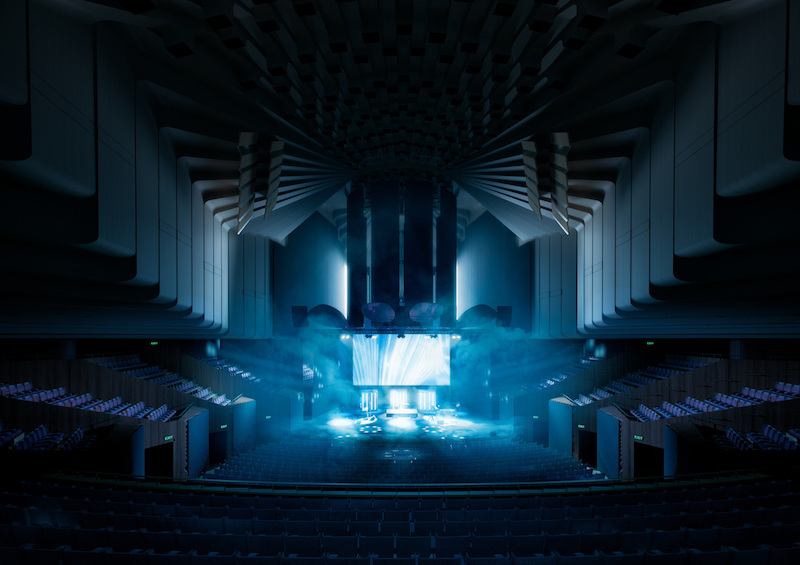 Main Concert Hall. Image Courtesy of Sydney Opera House
Main Concert Hall. Image Courtesy of Sydney Opera House
The renovation looks to tackle some of the major problems with the structure, such as the poor acoustical design of its main concert hall. Seeing as it is an opera house, bad acoustics are a major problem, one that stems from the very high ceiling being unable to reflect much of the sound coming from the orchestra back down. The solution to this problem is to add a new ceiling with sonic reflectors that will carry the sound much better. Additionally, the stage will be lowered and a new air conditioning system will be installed under the seating area. Construction of the Concert Hall upgrade is scheduled to begin in mid-2019 and take about 18 months to complete.
The Opera House’s second largest internal performance space, The Joan Sutherland Theatre, will also undergo a $45 million facelift and be closed for seven months in 2017.
Other renovations will focus on improving accessibility, efficiency, and flexibility by updating and improving technology and design elements that may have been innovative and trendy back in the early 70s, but are now extremely dated.
A smaller, more efficient cooling system will be installed throughout the building, the old exterior marquee will be removed, and a new entrance and foyer will be connected to an improved car-free entrance under the Monumental Steps to improve building access. New hallways, elevators, and an escalator will also be constructed to make navigating the Opera House simpler.
A new Function Center will be constructed to host social events and existing office space will be transformed into a Creative Learning Center for children.
While the renovations are not expected to finish until 2021, the Opera House will remain open during the project with certain areas closing while they are actively being renovated.
The Opera Houses’s Eminent Architects Panel is involved in the project and ARM Architecture is handling the redesign of the main concert hall.
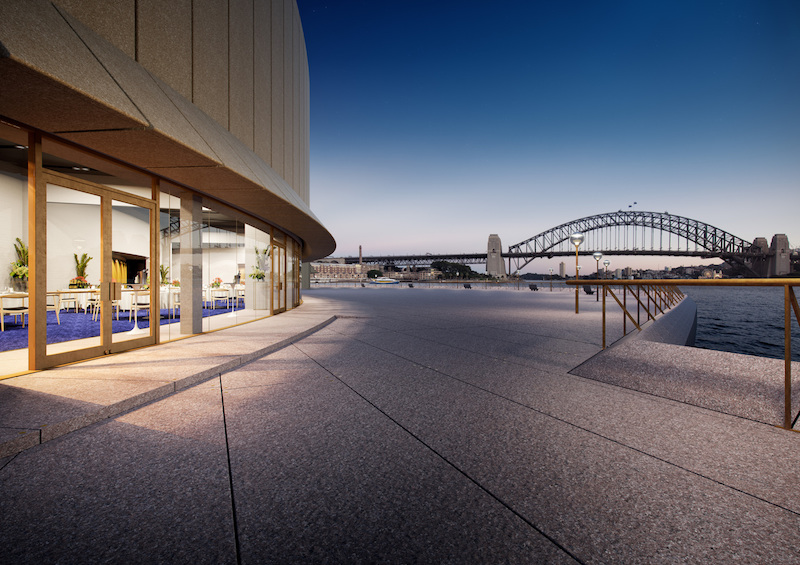 A rendering of outside the new Function Center. Image Courtesy of Sydney Opera House
A rendering of outside the new Function Center. Image Courtesy of Sydney Opera House
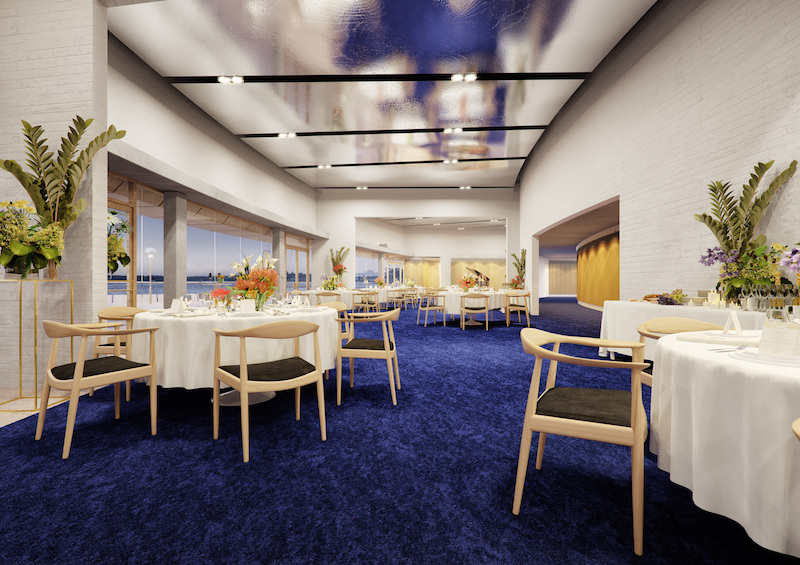 Inside the Function Center. Image Courtesy of Sydney Opera House
Inside the Function Center. Image Courtesy of Sydney Opera House
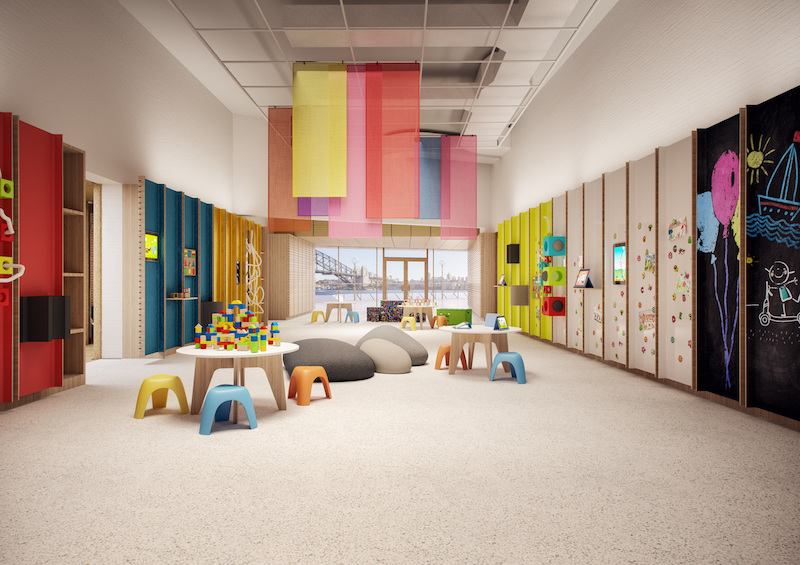 The Creative Learning Center. Image Courtesy of Sydney Opera House
The Creative Learning Center. Image Courtesy of Sydney Opera House
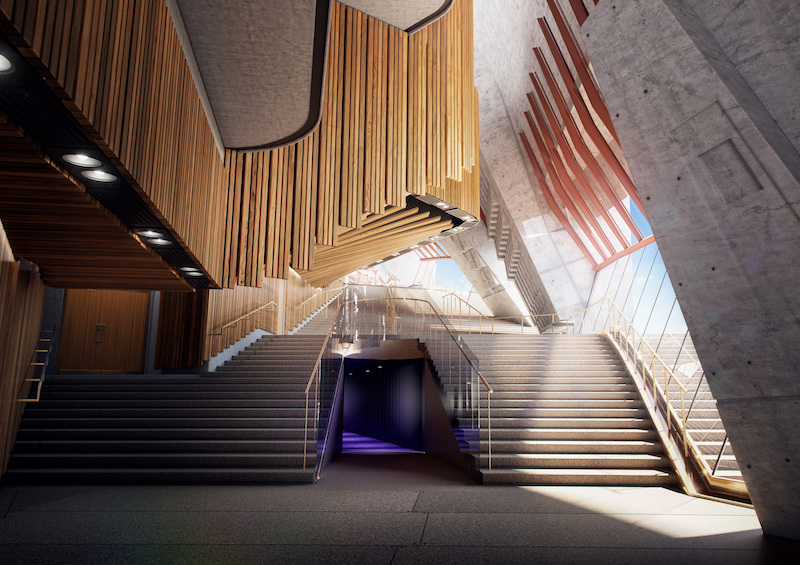 Northern Foyer. Image Courtesy of Sydney Opera House.
Northern Foyer. Image Courtesy of Sydney Opera House.
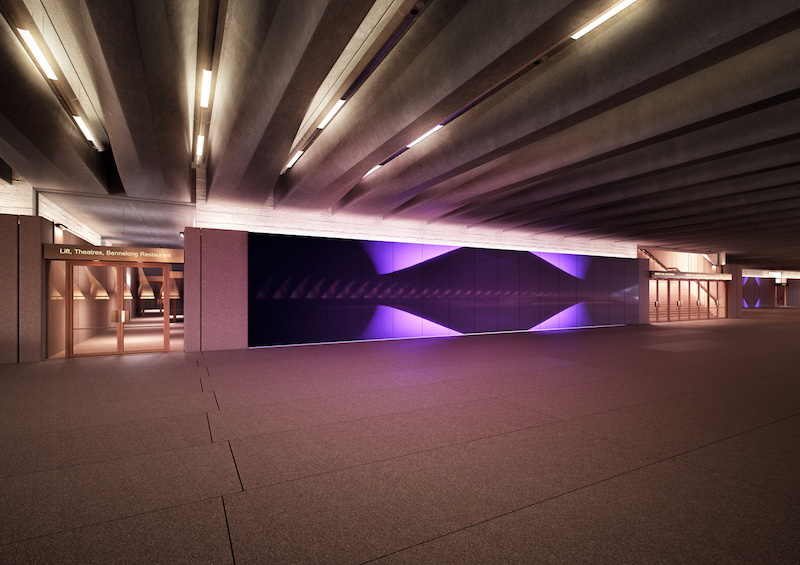 Entry and Foyer. Image Courtesy of Sydney Opera House
Entry and Foyer. Image Courtesy of Sydney Opera House
Related Stories
| Oct 12, 2014
AIA 2030 commitment: Five years on, are we any closer to net-zero?
This year marks the fifth anniversary of the American Institute of Architects’ effort to have architecture firms voluntarily pledge net-zero energy design for all their buildings by 2030.
| Oct 2, 2014
Budget busters: Report details 24 of the world's most obscenely over-budget construction projects
Montreal's Olympic Stadium and the Sydney Opera House are among the landmark projects to bust their budgets, according to a new interactive graph by Podio.
| Sep 24, 2014
Architecture billings see continued strength, led by institutional sector
On the heels of recording its strongest pace of growth since 2007, there continues to be an increasing level of demand for design services signaled in the latest Architecture Billings Index.
| Sep 22, 2014
4 keys to effective post-occupancy evaluations
Perkins+Will's Janice Barnes covers the four steps that designers should take to create POEs that provide design direction and measure design effectiveness.
| Sep 22, 2014
Sound selections: 12 great choices for ceilings and acoustical walls
From metal mesh panels to concealed-suspension ceilings, here's our roundup of the latest acoustical ceiling and wall products.
| Sep 9, 2014
Using Facebook to transform workplace design
As part of our ongoing studies of how building design influences human behavior in today’s social media-driven world, HOK’s workplace strategists had an idea: Leverage the power of social media to collect data about how people feel about their workplaces and the type of spaces they need to succeed.
| Sep 3, 2014
New designation launched to streamline LEED review process
The LEED Proven Provider designation is designed to minimize the need for additional work during the project review process.
| Sep 2, 2014
Ranked: Top green building sector AEC firms [2014 Giants 300 Report]
AECOM, Gensler, and Turner top BD+C's rankings of the nation's largest green design and construction firms.
| Aug 25, 2014
Ranked: Top cultural facility sector AEC firms [2014 Giants 300 Report]
Arup, Gensler, and Turner head BD+C's rankings of design and construction firms with the most revenue from cultural facility projects, as reported in the 2014 Giants 300 Report.
| Jul 28, 2014
Reconstruction market benefits from improving economy, new technology [2014 Giants 300 Report]
Following years of fairly lackluster demand for commercial property remodeling, reconstruction revenue is improving, according to the 2014 Giants 300 report.


